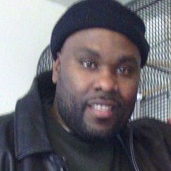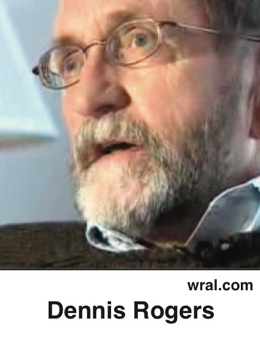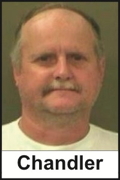Rascals case in brief
In the beginning, in 1989, more than 90 children at the Little Rascals Day Care Center in Edenton, North Carolina, accused a total of 20 adults with 429 instances of sexual abuse over a three-year period. It may have all begun with one parent’s complaint about punishment given her child.
Among the alleged perpetrators: the sheriff and mayor. But prosecutors would charge only Robin Byrum, Darlene Harris, Elizabeth “Betsy” Kelly, Robert “Bob” Kelly, Willard Scott Privott, Shelley Stone and Dawn Wilson – the Edenton 7.
Along with sodomy and beatings, allegations included a baby killed with a handgun, a child being hung upside down from a tree and being set on fire and countless other fantastic incidents involving spaceships, hot air balloons, pirate ships and trained sharks.
By the time prosecutors dropped the last charges in 1997, Little Rascals had become North Carolina’s longest and most costly criminal trial. Prosecutors kept defendants jailed in hopes at least one would turn against their supposed co-conspirators. Remarkably, none did. Another shameful record: Five defendants had to wait longer to face their accusers in court than anyone else in North Carolina history.
Between 1991 and 1997, Ofra Bikel produced three extraordinary episodes on the Little Rascals case for the PBS series “Frontline.” Although “Innocence Lost” did not deter prosecutors, it exposed their tactics and fostered nationwide skepticism and dismay.
With each passing year, the absurdity of the Little Rascals charges has become more obvious. But no admission of error has ever come from prosecutors, police, interviewers or parents. This site is devoted to the issues raised by this case.
On Facebook
Click for earlier Facebook posts archived on this site
Click to go to
Today’s random selection from the Little Rascals Day Care archives….
Click for earlier Facebook posts archived on this site
Click to go to
Today’s random selection from the Little Rascals Day Care archives….
View from inmate: DAs build ‘careers on the backs of us innocent prisoners’

freelorenzojohnson.org
Lorenzo Johnson
July 29, 2016
“Sometimes prosecutors withhold exculpatory evidence of a defendant’s innocence, and don’t turn it over until they are forced to. Take a look at the exonerations reported in recent years and you will see a pattern of prosecutors continuing to fight against our release even when our innocence is uncovered. Many innocent prisoners have been buried alive in these prisons by this kind of corruption….
“How do the culprits sleep at night? Well, to be honest, these people have no consciences. It’s like any other day at the job for them. Some have built their careers on the backs of us innocent prisoners, and now they sit in high places.
“Until the day comes when culprits responsible for wrongful convictions are held fully accountable – wrongful convictions will never stop.”
– From “When Courts Are Used As A Weapon Against The Innocent” by Lorenzo Johnson at Huffington Post (July 12)
Johnson had served 16 1/2 years of a life-without-parole sentence when in 2012 the Third Circuit Federal Court of Appeals found insufficient evidence for his conviction. He remained free for four months, after which the U.S. Supreme Court unanimously reinstated the conviction and ordered him back to a Pennsylvania prison. He continues to seek a new trial.
![]()
‘Belief in a devil’ is essential to fanatics
Oct. 31, 2012
“Mass movements can rise and spread without a belief in God, but never without belief in a devil.”
– Eric Hoffer in his landmark analysis of fanaticism, “The True Believer” (1951)
Hoffer’s point was impressively made in the day-care mania. In no case I’ve found – in this country at least – did religion play a significant factor. To the contrary, several ministers and churches were on the receiving end of wrongful prosecution.
Dennis Rogers: Who has the courage to make amends?
 Dec. 21, 2013
Dec. 21, 2013
As noted here and here, News & Observer columnist Dennis Rogers was among the too-few voices of skepticism about the Little Rascals case. Today Rogers is mostly retired, but he continues to lament the state’s failure to take responsibility for its willful prosecution of seven innocent defendants:
“North Carolina has a sad reputation for misguided justice. There is no better example than the plight of the Edenton Seven. The government destroyed lives and families in its fevered rush to find wrong where there was none.
“It takes political courage to right painful and embarrassing wrongs from 25 years ago. The case of the Edenton Seven offers those who would claim the mantle of leadership in our state an opportunity to demonstrate that they are the kind of people we need in Raleigh.
“Silence in the face of such obvious injustice is cowardice.”
A last chance at freedom – or the end of the road
 Feb. 15, 2012
Feb. 15, 2012
I asked Mark Montgomery for an update on Junior Chandler’s latest appeal of his two life sentences for child sexual abuse:
“There are two prongs to the appeal. First, I am asking the N.C. Supreme Court to simply do the right thing by Junior. The Court said in 2010 that expert testimony like that in Junior’s case is (and was) inadmissible. That being the case, it is fundamentally unfair for Junior to be facing the rest of his life in prison, when many defendants have been freed because this sort of testimony was used against them at trial.
“Second, Junior’s lawyer objected to the testimony but did not raise the issue on appeal. I argued in a motion in Superior Court that the lawyer was ineffective for abandoning the issue. The Superior Court judge denied the motion without a hearing. If the Supreme Court will not itself set aside Junior’s convictions, it should at least require a hearing on trial counsel’s conduct.”
This is how the process works: “Petitions such as Junior’s go to one of the six associate justices. He or she decides what should be done and then presents the case to the court as a whole in a monthly (sort of) closed door meeting. The justices then vote on whether to grant the petition. If the Court grants the petition, it usually requires full briefs from both parties, but may decide the case of the basis of the petition and the State’s response alone.
“If it denies the petition, that’s the end of the road.”
The court could respond as early as April 13, according to this chart of petitions allowed and denied.











0 CommentsComment on Facebook